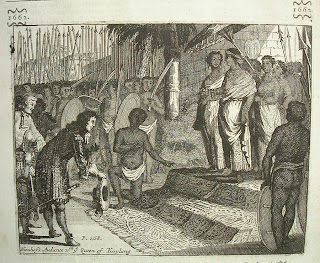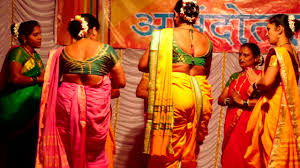Teachers! - Are you still a Role Models!?





The aspiration to pursue a career in teaching was once regarded as a very personal and passionate endeavour. However, the perception of this vocation has shifted, as it is now more adopted as a trendy pursuit, with a diminished emphasis on genuine passion and commitment to the profession. During my childhood, I derived immense pleasure from engaging in imaginative play, particularly a game called "Teacher-Teacher," where I would assume the role of my beloved Manjula Teacher. She held the position of Head responsible for overseeing the Primary Teacher. She exhibited exceptional administrative skills.
Occasionally, I observe the children residing in the local vicinity engaging in a shared recreational activity, wherever they infrequently assume the roles of their educators. Subsequently, subsequent to some convincing, I acquired knowledge that the individuals in question harboured a collective aversion towards their educators, substantiated by an extensive inventory of grievances. The prevalence of visible errors is seen across many professions, including the field of education. However, it is peculiar that contemporary students do not perceive their instructors as role models, instead opting for individuals from different professions or even strangers to fulfil this function. The situation is cause for concern. This observation suggests a shortage of educators inside our educational institutions.
One of the most concerning issues in the educational landscape of India is the growing prevalence of physical punishments in schools. To what extent have educators embraced physical punishment as a pedagogical strategy or as a means to alleviate their stress and frustration?
According to a study performed by the National Child Rights body, it has been shown that a significant majority of kids in educational institutions nationwide, namely over 80 percent, experience humiliation from teachers who express doubts over their learning abilities.
Recently, I saw news on an incident when a fourth-grade girl was reportedly subjected to physical assault by her school principal. The purported reason for this act of violence was the girl's use of Telugu, a regional language and the mother tongue of many individuals in Andhra Pradesh, within the school premises.
In the Karnal area, a six-year-old male child was confined within a dimly lit enclosure by his kindergarten instructor as a consequence of his failure to complete assigned academic tasks. Tragically, the child succumbed to psychological distress approximately six weeks subsequent to this incident.
A recent occurrence has transpired in a reverse manner. The news coverage in February 2012 on an incident at St Mary's School in Chennai, where a pupil in the ninth grade purportedly fatally stabbed his teacher, evokes a profound sense of astonishment..
A few years ago, during my tenure as a Social Worker at a school, I encountered a situation wherein parents expressed their concerns to the school administration regarding the need for stricter disciplinary measures, including the endorsement of corporal punishment by teachers. I distinctly recall one parent approaching me and explicitly granting permission for physical discipline or any form of punitive action to be administered upon their child. In response to her, I conveyed that in the event of a student's failure to complete homework, projects, or assignments, it is the parents who should be held accountable rather than the child. Subsequently, she lodged a complaint against me with the school administration.
Now, let us redirect our focus towards the recently executed event that was specifically targeted towards educators, whereby Dr. A.P.J Abdul Kalam, the former President of India, offered a discourse to the participants. The central theme of his discourse revolved around the empowerment of students through the acquisition of knowledge and the cultivation of ethical standards. During his oration, he presented a question to the alleged instructors, asking, "To what degree do you function as role models for your students?" The collected persons did not provoke any response. He said, "Consequently, do any of the educators presently present possess the qualities of being exemplary role models for your students?".
After a short period of time, it was observed that only a small subset of persons chose to raise their hands. The user expresses appreciation for the genuine and thoughtful answer offered by the folks identified as teachers. Concurrently, they demonstrate empathy towards the children who are being educated by these folks. As the month of November approaches, or even before to its arrival, parents engage in a thorough evaluation process to meticulously choose the most outstanding educational establishments within their vicinity. Parents proceed to submit applications, participate in interviews alongside their children, and ultimately secure admission for their offspring. The attainment of this accomplishment frequently elicits a deep-seated feeling of alleviation and contentment.
Furthermore, it is worth noting that in many educational institutions affiliated with well-known missions or ideological groups such as "amma," "appa," "nana," "nani," and others, parents are required to undergo assessments that evaluate their alignment with the mission's views and principles. It is imperative for parents to possess knowledge regarding the mission, ambitions, and vision of an institution prior to submitting an application. In contemporary times, the practise of parents selecting between different mediums of teaching or deciding between convent schools and corporate schools (government schools) has become obsolete.
Subsequently, the notion of educational board affiliation, such as SSC/SSLC/CBSC/ICSE, emerged, leading to a sudden proliferation of XYZ MODEL schools and similar establishments in various locations. In contemporary times, there is a prevailing inclination among parents to favour educational institutions that use digital technologies, such as DIGI Schools and SMART schools, alongside a diverse range of activities and experiential learning opportunities, rather than solely relying on computer-based instruction. In order for a child to possess intelligence, it is imperative that the educational institution itself demonstrates a high level of intellectual acumen. This logical connection is apparent. The school that boasts superior infrastructure and a premium tuition price structure lacks dedicated individuals in the role of teachers.
It is evident that a significant proportion of educators at private schools across various cities in our nation lack the necessary qualifications to be considered professional teachers. Some persons choose to become teachers out of altruism, passion, and a desire to make beneficial use of their time. However, there are also those who enter the teaching profession for misguided reasons.
A teacher is not merely an individual possessing genuine information, but rather a comprehensive system of true knowledge. The impact of a teacher on students can be either beneficial or bad. The pupils spend a longer length in school with their teachers. The determining factor in students' lives is not the syllabus, board, or model of instruction, but rather the teacher who possesses the ability to effect lasting change. Through their expertise, teachers have the capacity to foster students' visualisation skills, creativity, innovation, and empowerment in a meaningful manner.
The current state of the world raises concerns regarding the safety of humans, particularly in relation to the well-being of children within educational institutions and their interactions with teachers.










Comments